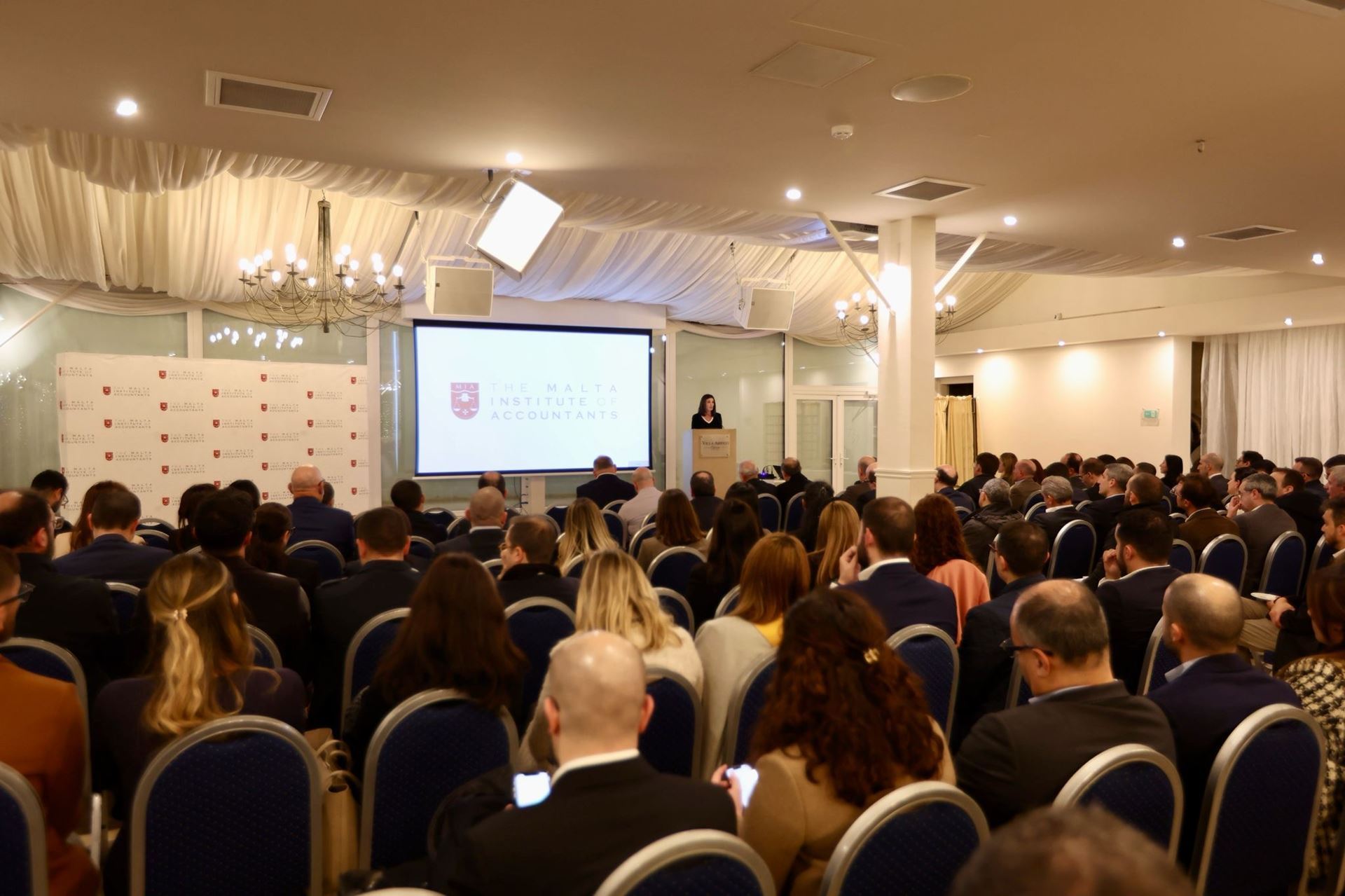The Malta Institute of Accountants has formalised the reconstitution of its thirteen committees and focus groups, and twenty working groups for a new two-year term, ensuring a fresh influx of expertise and perspectives within its setup, joining forces with already established members. The new committee formations, effective this January, play a major contribution in supporting the activity of the MIA and fostering professional growth and excellence within the accountancy community.
To mark this renewal, a networking event was held at Villa Arrigo, attended by over 160 members of these committees and groups, together with MIA Council members, management and staff, creating a platform for collaboration and exchange of ideas in preparation of the task ahead.
These committees and groups play a pivotal role by backing up the Institute in shaping the industry landscape by producing technical documents, consulting with members, responding to consultation documents, organising CPE events and staying abreast of proposed EU and national legislation. Together, they also play a key role in enhancing the visibility and branding of the Institute and the accountancy profession itself, while contributing to efforts intended to increase awareness about this profession among the younger generation.
The Committees cover core areas of the profession and various niches of the wider financial industry, including taxation, audit, sustainable finance, digital, ethics and financial reporting among others. On the other hand, the Focus Groups address the needs of specific communities within the accountancy profession, including Professional Accountants in Business, Small and Medium-sized Practitioners and the younger members.
Maria Cauchi Delia, MIA Chief Executive Officer expressed her sincere appreciation towards the outgoing committee members who contributed significantly to the Institute's growth and success. She highlighted the extraordinary input of the committee members particularly by supporting the MIA in proactively putting forward recommendations and providing feedback for draft legislation as well as industry standards originating from Malta and abroad.
In their previous term which came to its conclusion at the end of last year, the committees and groups totalled in excess of 500 hours of meetings, producing several technical documents, contributing to over 25 events and replying to some 25 consultation documents.
She also extended a warm welcome to the new members within the Institute's committees, focus groups and working groups, acknowledging their commitment to the cause and emphasising the collective responsibility to drive positive change within the industry.
Among the key areas of work for the two years ahead, Ms Cauchi Delia highlighted the commitment of the Institute to continue contributing towards the new financial services strategy as part of the activity of the Malta Financial Services Advisory Council, as well as leading its members through new realities determined by changes such as sustainability reporting, changes in taxation, the advent of new international standards as well as the digital transition.
“Your willingness to offer your time and expertise speaks volumes about your passion for our shared mission. Working together we can bring tangible change, shaping the future of the accountancy profession in Malta," concluded Ms Cauchi Delia.



